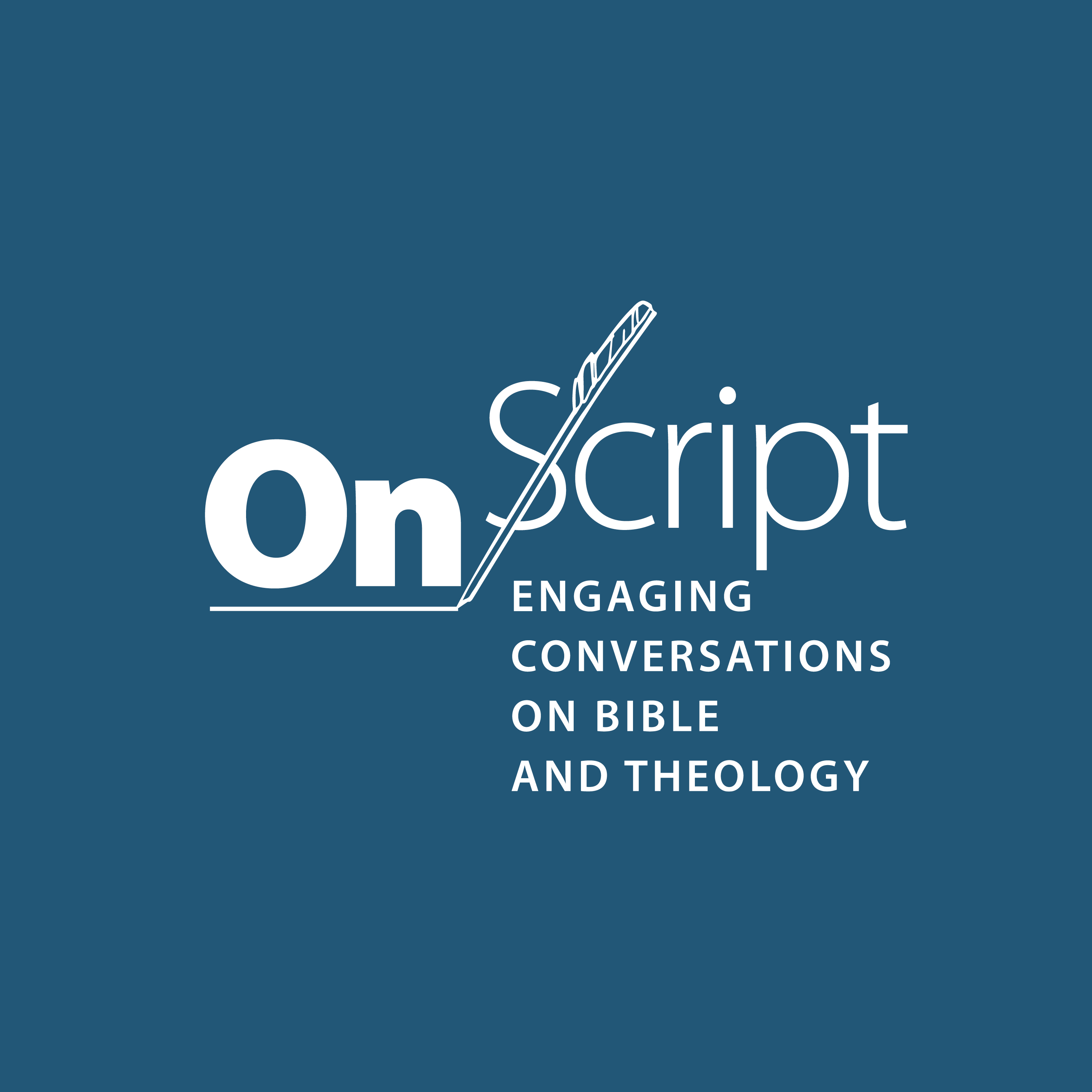Episodes
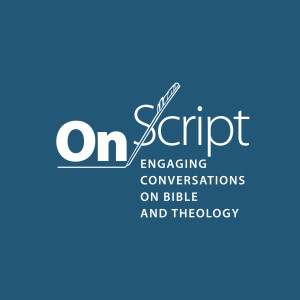
Tuesday Jan 19, 2021
Mike Bird & Scott Harrower - Trinity Without Hierarchy
Tuesday Jan 19, 2021
Tuesday Jan 19, 2021

 Episode: While there is nothing new drama over the Trinity, there has been quite the kerfuffle in evangelical circles about the subordination of the Son in recent years. In this episode co-host Amy Hughes talks with Mike Bird and Scott Harrower about teaching and preaching the Trinity, theological controversy, and their co-edited project that lays out and addresses all the drama - Trinity without Hierarchy: Reclaiming Nicene Orthodoxy in Evangelical Theology.
Episode: While there is nothing new drama over the Trinity, there has been quite the kerfuffle in evangelical circles about the subordination of the Son in recent years. In this episode co-host Amy Hughes talks with Mike Bird and Scott Harrower about teaching and preaching the Trinity, theological controversy, and their co-edited project that lays out and addresses all the drama - Trinity without Hierarchy: Reclaiming Nicene Orthodoxy in Evangelical Theology.
Guests: Mike Bird is Academic Dean and Lecturer in Theology at Ridley College. Mike describes himself as a “biblical theologian” who endeavours to bring together biblical studies and systematic theology. He believes that the purpose of the church is to “gospelize,” that is to preach, promote, and practise the Gospel-story of the Lord Jesus Christ. Remembered by students for his mix of outlandish humour and intellectual rigor, he makes theology both entertaining and challenging. Mike has written and edited over thirty books in the fields of Septuagint, Historical Jesus, the Gospels, St Paul, Biblical Theology, and Systematic Theology. His book Evangelical Theology is an attempt to develop a truly gospel-based theology that promotes the advance of the gospel in Christian life and thought. He is the co-editor of the New Covenant Commentary Series, an associate editor for Zondervan’s The Story of God Bible Commentary, and an elected member of the Studiorum Novi Testamenti Societas (the international society of New Testament scholars). He often speaks at conferences in Australia, the UK, and USA and has written a New Testament Introduction co-authored with N.T. Wright. He also runs a popular blog called Euangelion. Michael is married to Naomi and they have four children.

Tuesday Jan 12, 2021
Wil Gafney - Womanist Midrash
Tuesday Jan 12, 2021
Tuesday Jan 12, 2021
 Episode: There are 111 named women in the Old Testament. But they're often unknown and ignored. In this episode Wil Gafney reintroduces us to women we thought we knew and introduces those we never knew. We discuss the sanctified imagination, Midrashic interpretation, womanist approaches to scripture, Queen mothers, army chaplaincy, and much more from her book Womanist Midrash (WJK Press).
Episode: There are 111 named women in the Old Testament. But they're often unknown and ignored. In this episode Wil Gafney reintroduces us to women we thought we knew and introduces those we never knew. We discuss the sanctified imagination, Midrashic interpretation, womanist approaches to scripture, Queen mothers, army chaplaincy, and much more from her book Womanist Midrash (WJK Press).
Guest: Dr. Wil Gafney is professor of Hebrew Bible at Brite Divinity School in Ft. Worth, Texas. She is the author of Daughters of Miriam: Women Prophets in Ancient Israel (Fortress Press), Womanist Midrash: A Reintroduction to Women of the Torah and of the Throne (WJK Press), a commentary on Nahum, Habakkuk, Zephaniah (Liturgical Press), and she has co-edited several books. She is an Episcopal priest, former Army chaplain, and congregational pastor in the AME Zion Church, and was also a member of a worshipping Reconstructionist Jewish congregation in Philadelphia.
Give: Help support OnScript as we grow and develop. Click HERE.

Tuesday Dec 29, 2020
John Behr - Origen and the Early Church, Pt 2
Tuesday Dec 29, 2020
Tuesday Dec 29, 2020
 Theology Track Episode: Live from Nashotah House, WI (3rd year running), here's part 2 of our interview with Fr John Behr. Amy Brown Hughes talks with Fr John Behr about Origen and all things Patristic. In addition to more of the interview, we've got some Q&A in this episode. If you missed Part 1, visit HERE. This is a re-broadcast from 2019.
Theology Track Episode: Live from Nashotah House, WI (3rd year running), here's part 2 of our interview with Fr John Behr. Amy Brown Hughes talks with Fr John Behr about Origen and all things Patristic. In addition to more of the interview, we've got some Q&A in this episode. If you missed Part 1, visit HERE. This is a re-broadcast from 2019.

Guest: The Very Reverend Dr John Behr is a British Eastern Orthodox priest and theologian. He is the former Dean of St. Vladimir's Orthodox Theological Seminary, where he is currently the Director of the Master of Theology Program and the Father Georges Florovsky Distinguished Professor of Patristics. He was ordained to the diaconate on September 8, 2001 and the priesthood on September 14, 2001. He is the editor of the Patristic Series released by St. Vladimir's Press. He was elected dean of the seminary on November 18, 2006, and served as dean from 2007 until 2017, when he was named Father Georges Florovsky Distinguished Professor of Patristics. He's the author of numerous books, including translation works, e.g., Origen: On First Principles (Oxford), Irenaeus: On the Apostolic Teaching (St Vladimir's Press), The Way to Nicaea, Vol. 1 (St. Vladimir's Press), and Formation of Christian Theology, Vol. 2: The Nicene Faith (St. Vladimir's Press). (adapted from Wikipedia, no less) 
Give: Help support OnScript as we grow and develop. Click HERE.
 If you like this: Check out our episode with Amy Brown Hughes and Lynn Cohick on their book Christian Women in the Patristic World, as well as our episode with Meghan Henning on her book Educating Early Christians Through the Rhetoric of Hell, and our episode with Matthew Thomas on his book Paul’s ‘Works of the Law’ in the Perspective of Second Century Reception.
If you like this: Check out our episode with Amy Brown Hughes and Lynn Cohick on their book Christian Women in the Patristic World, as well as our episode with Meghan Henning on her book Educating Early Christians Through the Rhetoric of Hell, and our episode with Matthew Thomas on his book Paul’s ‘Works of the Law’ in the Perspective of Second Century Reception.

Tuesday Dec 29, 2020
John Behr - Origen and the Early Church
Tuesday Dec 29, 2020
Tuesday Dec 29, 2020
 Theology Track Episode: Live from Nashotah House, WI (3rd year running), we've got a two-part interview. Amy Brown Hughes talks with Fr John Behr about Origen and all things Patristic. This episode requires theological safety gear, helmet, orange cones, ... everything. This is a rebroadcast from 2019.
Theology Track Episode: Live from Nashotah House, WI (3rd year running), we've got a two-part interview. Amy Brown Hughes talks with Fr John Behr about Origen and all things Patristic. This episode requires theological safety gear, helmet, orange cones, ... everything. This is a rebroadcast from 2019.

Guest: The Very Reverend Dr John Behr is a British Eastern Orthodox priest and theologian. He is the former Dean of St. Vladimir's Orthodox Theological Seminary, where he is currently the Director of the Master of Theology Program and the Father Georges Florovsky Distinguished Professor of Patristics. He was ordained to the diaconate on September 8, 2001 and the priesthood on September 14, 2001. He is the editor of the Patristic Series released by St. Vladimir's Press. He was elected dean of the seminary on November 18, 2006, and served as dean from 2007 until 2017, when he was named Father Georges Florovsky Distinguished Professor of Patristics. He's the author of numerous books, including translation works, e.g., Origen: On First Principles (Oxford), Irenaeus: On the Apostolic Teaching (St Vladimir's Press), The Way to Nicaea, Vol. 1 (St. Vladimir's Press), and Formation of Christian Theology, Vol. 2: The Nicene Faith (St. Vladimir's Press). (adapted from Wikipedia, no less) 
Give: Help support OnScript as we grow and develop. Click HERE.
 If you like this: Check out our episode with Amy Brown Hughes and Lynn Cohick on their book Christian Women in the Patristic World, as well as our episode with Meghan Henning on her book Educating Early Christians Through the Rhetoric of Hell, and our episode with Matthew Thomas on his book Paul’s ‘Works of the Law’ in the Perspective of Second Century Reception.
If you like this: Check out our episode with Amy Brown Hughes and Lynn Cohick on their book Christian Women in the Patristic World, as well as our episode with Meghan Henning on her book Educating Early Christians Through the Rhetoric of Hell, and our episode with Matthew Thomas on his book Paul’s ‘Works of the Law’ in the Perspective of Second Century Reception.

Tuesday Dec 15, 2020
Garrick Allen - Manuscripts and All that Other Stuff on the Page (Paratexts)
Tuesday Dec 15, 2020
Tuesday Dec 15, 2020

Episode: Dru Johnson talks with Garrick Allen about his ongoing research project to investigate the paratexts of biblical manuscripts, how these help us to understand reception and biblical theologies, and his book Manuscripts of the Book of Revelation: New Philology, Paratexts, Reception (OUP, 2019).
Guest: Garrick V. Allen (PhD 2015, St Andrews) is Associate Professor in the School of Critical Studies at the University of Glasgow. His book The Book of Revelation and Early Jewish Textual Culture (Cambridge University Press, 2017) was awarded the 2019 Manfred Lautenschlaeger Award for Theological Promise and he has written many articles on the book of Revelation and manuscripts of the New Testament. He is also the recipient of the 2019 Paul J. Achtemeier Award for New Testament Scholarship awarded by the Society of Biblical Literature.
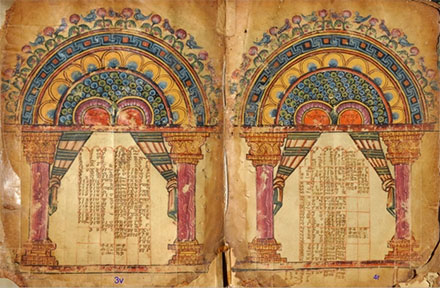
Help Support OnScript: Visit our Donate Page if you want to join the big leagues and become a regular donor.

Tuesday Dec 08, 2020
Jemar Tisby - The Color of Compromise
Tuesday Dec 08, 2020
Tuesday Dec 08, 2020
 Episode: In this episode Erin hosts Jemar Tisby, who is the founder and CEO of The Witness: A Black Christian Collective (thewitnessbcc.com) and author of the New York Times bestseller The Color of Compromise: The Truth about the American Church’s Complicity in Racism (Zondervan, 2019). Tune in for this important and challenging conversation on the history of racism and Christianity in America and its ongoing relevance for current conversations on racial justice. You can also now pre-order Jemar’s second book, How to Fight Racism (Zondervan, 2021), which will be released on January 5th.
Episode: In this episode Erin hosts Jemar Tisby, who is the founder and CEO of The Witness: A Black Christian Collective (thewitnessbcc.com) and author of the New York Times bestseller The Color of Compromise: The Truth about the American Church’s Complicity in Racism (Zondervan, 2019). Tune in for this important and challenging conversation on the history of racism and Christianity in America and its ongoing relevance for current conversations on racial justice. You can also now pre-order Jemar’s second book, How to Fight Racism (Zondervan, 2021), which will be released on January 5th.
The Book: (from Zondervan) The Color of Compromise is both enlightening and compelling, telling a history we either ignore or just don't know. Equal parts painful and inspirational, it details how the American church has helped create and maintain racist ideas and practices. You will be guided in thinking through concrete solutions for improved race relations and a racially inclusive church.
 Guest: (from Zondervan) Jemar Tisby (BA, University of Notre Dame; MDiv, Reformed Theological Seminary) is CEO of The Witness, Inc., an organization dedicated to Black uplift. He is also cohost of the Pass the Mic podcast and the author of the New York Times bestseller The Color of Compromise. He has spoken nationwide at conferences, and his writing has been featured by the Washington Post, CNN, and The Atlantic.
Guest: (from Zondervan) Jemar Tisby (BA, University of Notre Dame; MDiv, Reformed Theological Seminary) is CEO of The Witness, Inc., an organization dedicated to Black uplift. He is also cohost of the Pass the Mic podcast and the author of the New York Times bestseller The Color of Compromise. He has spoken nationwide at conferences, and his writing has been featured by the Washington Post, CNN, and The Atlantic.  Jemar is a PhD candidate in history at the University of Mississippi studying race, religion, and social movements in the twentieth century. You can also now pre-order Jemar’s second book, How to Fight Racism (Zondervan, 2021), which will be released on January 5th.
Jemar is a PhD candidate in history at the University of Mississippi studying race, religion, and social movements in the twentieth century. You can also now pre-order Jemar’s second book, How to Fight Racism (Zondervan, 2021), which will be released on January 5th.

Tuesday Dec 01, 2020
Jeremy Schipper - Black Samson
Tuesday Dec 01, 2020
Tuesday Dec 01, 2020
 Episode: Biblical Samson offered a powerful way of focusing and communicating the struggle, opportunities, and challenge of life for African Americans throughout U.S. history. From the prophesies of his parents concerning the deliverance he'd begin, to the enslaved man who ground at the Philistine mill, to the final moments when he toppled the Philistine temple, Samson was a prominent point of reference for abolitionists, activists, and, oddly enough, some white supremacists. Jeremy Schipper and Nyasha Junior trace the life of Black Samson and tell his wild and wonderful story.
Episode: Biblical Samson offered a powerful way of focusing and communicating the struggle, opportunities, and challenge of life for African Americans throughout U.S. history. From the prophesies of his parents concerning the deliverance he'd begin, to the enslaved man who ground at the Philistine mill, to the final moments when he toppled the Philistine temple, Samson was a prominent point of reference for abolitionists, activists, and, oddly enough, some white supremacists. Jeremy Schipper and Nyasha Junior trace the life of Black Samson and tell his wild and wonderful story.
Guest: Dr. Jeremy Schipper is Professor of Religion at Temple University in Philadelphia. In addition to Black Samson, he’s published the Ruth Anchor Bible commentary, Disability and Isaiah’s Suffering Servant (OUP, 2011), Parables and Conflict in the Hebrew Bible (Cambridge, 2009), Disability Studies and the Hebrew Bible (T&T Clark, 2006), and has co-authored Black Samson (OUP 2020) with Nyasha Junior. He’s also co-edited several volumes. 
Help Support OnScript: Visit our Donate Page if you want to join the big leagues and become a regular donor.

Tuesday Nov 24, 2020
Richard Rice - The Future of Open Theism
Tuesday Nov 24, 2020
Tuesday Nov 24, 2020
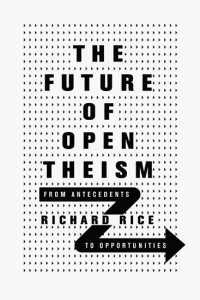 Episode: The upstart theological movement called open theism is coming of age. It's time to reassess its possibilities, promises, and perils. One of the founders of open theism, Richard Rice, speaks with co-host Matt Bates about varieties of open theism, vexed models concerning God and time, and his own spiritual journey in the face of the intense controversies surrounding open theism within evangelicalism.
Episode: The upstart theological movement called open theism is coming of age. It's time to reassess its possibilities, promises, and perils. One of the founders of open theism, Richard Rice, speaks with co-host Matt Bates about varieties of open theism, vexed models concerning God and time, and his own spiritual journey in the face of the intense controversies surrounding open theism within evangelicalism.
The Book: Richard Rice, The Future of Open Theism: From Antecedents to Opportunities (IVP Academic, 2020). Open theism has reached its adolescence. How did it get here? And where does it go from here? Since IVP's publication of The Openness of God in 1994, evangelical theology has grappled with the alternative vision of the doctrine of God that open theism offers. Responding to critics who claim that it proposes a truncated version of God that fails to account for Scripture and denies many of the traditional attributes of God, open theism's proponents contend that its view of God is not only biblically warranted but also more accurate―with a portrayal of God that emphasizes divine love for humanity and responsiveness to human free will. No matter what one's assessment, open theism inarguably has made a significant impact on recent theological discourse. Now, twenty-five years later, Richard Rice recounts in this volume the history of open theism from its antecedents and early developments to its more recent and varied expressions. He then considers different directions that open theism might continue to develop in relation to several primary doctrines of the Christian faith. (Publisher’s description).
 Guest: Richard Rice received an MDiv degree from Andrews University in 1969, and an MA and PhD in Christian theology from the University of Chicago in 1972 and 1974, respectively. Rice is a Professor of Religion at Loma Linda University in the areas of Theology and Philosophy of Religion. Rice is the sole author numerous books, including God's Foreknowledge and Man’s Free Will; The Reign of God: An Introduction to Christian Theology from a Seventh-day Adventist Perspective; and Search for Meaning: Contemporary Responses to the Problem of Pain. He also co-authored, along with Clark Pinnock, John Sanders, William Hasker, and David Basinger, the book that for practical purposes launched open theism into the mainstream of theological conversation, The Openness of God: A Biblical Challenge to the Traditional Understanding of God.
Guest: Richard Rice received an MDiv degree from Andrews University in 1969, and an MA and PhD in Christian theology from the University of Chicago in 1972 and 1974, respectively. Rice is a Professor of Religion at Loma Linda University in the areas of Theology and Philosophy of Religion. Rice is the sole author numerous books, including God's Foreknowledge and Man’s Free Will; The Reign of God: An Introduction to Christian Theology from a Seventh-day Adventist Perspective; and Search for Meaning: Contemporary Responses to the Problem of Pain. He also co-authored, along with Clark Pinnock, John Sanders, William Hasker, and David Basinger, the book that for practical purposes launched open theism into the mainstream of theological conversation, The Openness of God: A Biblical Challenge to the Traditional Understanding of God.
OnScript's Review: All Christians have implicit or explicit models regarding how God engages the world. As classical theologians consider the widest categories—God's relationship to time, providence, and human free will—open theism has proven to be a disruptive but necessary conversation partner. Richard Rice masterfully maps the past and present landscape of open theism while adding his own powerful and creative voice. --Matthew W. Bates, author of The Birth of the Trinity, for OnScript
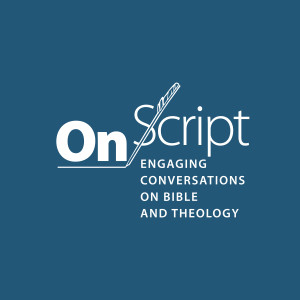
Tuesday Nov 17, 2020
Kevin Grasso - Christ-Faith in Paul's Letters
Tuesday Nov 17, 2020
Tuesday Nov 17, 2020
Episode: The debate as to whether the phrase πίστiς Χριστοῦ should be translated as "faith in Christ" (objective genitive) or the faithfulness of the Christ (subjective genitive) seems interminable. In an important new journal article, Kevin Grasso claims to have entirely disproven the viability of the objective genitive as traditionally understood. Meanwhile, he claims that a third-way solution ("Christ-faith" is better evidenced grammatically, while it also makes good theological sense of aspects of the subjective interpretation.
The Article: Kevin Grasso, “A Linguistic Analysis of πίστiς Χριστοῦ: The Case for the Third View,” Journal for the Study of the New Testament 43 (2020), 108-44. Published Abstract: "This study seeks to demonstrate that the Pauline phrase πίστις Χριστοῦ is best understood grammatically as the ‘Christ-faith’ in accordance with the so-called ‘third view’, where ‘faith’ is taken to mean a system or set of beliefs, and ‘Christ’ qualifies what the system is about. I argue that the grammar disallows the meaning ‘faith in Christ’ where Christ is the object of one’s ‘trust’, since objective genitives can only mean ‘belief of something (to be true)’, as is shown by an analysis of the data in the NT and in Harrisville 1994; 2006. Additionally, the subjective genitive rendering often fails to make sense within the literary context and faces its own grammatical difficulties. Drawing on work from theoretical linguistics in lexical semantics and syntax, I show that the third view meaning, translated as the ‘Christ-faith’, is the most likely rendering given the context of each of the passages, the Greek case system and the meaning of the noun πίστις as used in the NT and other Koine Greek writings."
Guest: Kevin Grasso is the founder of Biblingo, a software program to teach the biblical languages, and a PhD student at Hebrew University in the Hebrew language department as well as an MA student in the comparative religion department. He did his MA in linguistics with a focus in Bible translation from Dallas International University. He studies theoretical linguistics, particularly syntax and semantics, as well as contemporaneous literature with the Scriptures. He lives in Jerusalem with his wife Rachel and his son Emmett, and in his spare time, he enjoys playing basketball, hiking, hanging out with friends, Bible study, and occasionally attempting to play the violin.
OnScript's Review: Grasso's article makes a bold and potentially momentous claim: the traditional translation, "faith in Christ" as an objective genitive for pistis Christou, is grammatically disallowed. That is, the verb-noun-argument patterning evidenced for the pist* root shows that there is considerable evidence against and no grammatical evidence in favor of this translation, making it all but impossible. Although he may have offered a knock-out blow to the objective genitive, I don't find Grasso's evidence against the subjective decisive, for it does not take seriously enough how Paul establishes a pistis-lexicon and syntax earlier in his letters that places guiderails around how to take subsequent pistis Christou phrases. For example, the entire holistic ek pisteōs eis pistin structure ("by fidelity for fidelity") in Rom 1:17 needs to be taken more fully into account by Grasso given its relationship to dia pisteōs Iēsou Christou (through the fidelity of Jesus the Christ) and eis pantas tous pisteuontas (for all performing the fidelity action) in Rom 3:22. That is, Paul appears to separate the king's initial agency (by or through the Christ's fidelity) and its subsequent "for us" purpose (in order to cultivate human fidelity). [For further discussion, see Bates, "The External-Relational Shift in Faith (Pistis) in New Testament Research" CBR 18 (2020): 176-202, or, in a less technical fashion, Gospel Allegiance, p. 73-82]. Meanwhile Grasso musters evidence from reception history in favor of the third view that those favoring the subjective genitive will need to weigh. Regardless of questions about the subjective genitive versus the third way, Grasso's innovative demonstration that the objective genitive (as traditionally understood) is grammatically disallowed has seismic potential. --Matthew W. Bates, author of Salvation by Allegiance Alone, for OnScript

Tuesday Nov 10, 2020
Don Payne - Already Sanctified
Tuesday Nov 10, 2020
Tuesday Nov 10, 2020
 Episode: Conversations on sanctification can often leave Christians feeling spiritually inadequate and discouraged about their lack of spiritual growth and maturity, but Don J. Payne insists that this arises from a faulty view of sanctification. Instead, Scripture's view of sanctification, which involves being fitted for the presence of God and the purposes of God, should be understood as the sure foundation for the Christian life. Listen as theologian Don J. Payne joins Erin for a congenial and collegial interdisciplinary conversation on his newest book: Already Sanctified (Baker, 2020).
Episode: Conversations on sanctification can often leave Christians feeling spiritually inadequate and discouraged about their lack of spiritual growth and maturity, but Don J. Payne insists that this arises from a faulty view of sanctification. Instead, Scripture's view of sanctification, which involves being fitted for the presence of God and the purposes of God, should be understood as the sure foundation for the Christian life. Listen as theologian Don J. Payne joins Erin for a congenial and collegial interdisciplinary conversation on his newest book: Already Sanctified (Baker, 2020).
Guest: Dr. Don J. Payne is currently the Associate Professor of Theology and Christian Formation at Denver Seminary, where he  has served in various faculty roles since 1998. Prior to earning his PhD in Systematic Theology from the University of Manchester, Don served a number of years in pastoral ministry in various churches in Tennessee and Colorado. In addition to Already Sanctified, he has published
has served in various faculty roles since 1998. Prior to earning his PhD in Systematic Theology from the University of Manchester, Don served a number of years in pastoral ministry in various churches in Tennessee and Colorado. In addition to Already Sanctified, he has published  Surviving the Unthinkable (Resource Publications, 2015), and The Theology of the Christian Life in J. I. Packer's Thought (Paternoster, 2015). A proud West Texan from the Permian Basin region, Don has a penchant for hunting, fixing his truck, and Wolf Brand Chili.
Surviving the Unthinkable (Resource Publications, 2015), and The Theology of the Christian Life in J. I. Packer's Thought (Paternoster, 2015). A proud West Texan from the Permian Basin region, Don has a penchant for hunting, fixing his truck, and Wolf Brand Chili.
Give: Visit our Donate Page if you would like to support OnScript’s work.

